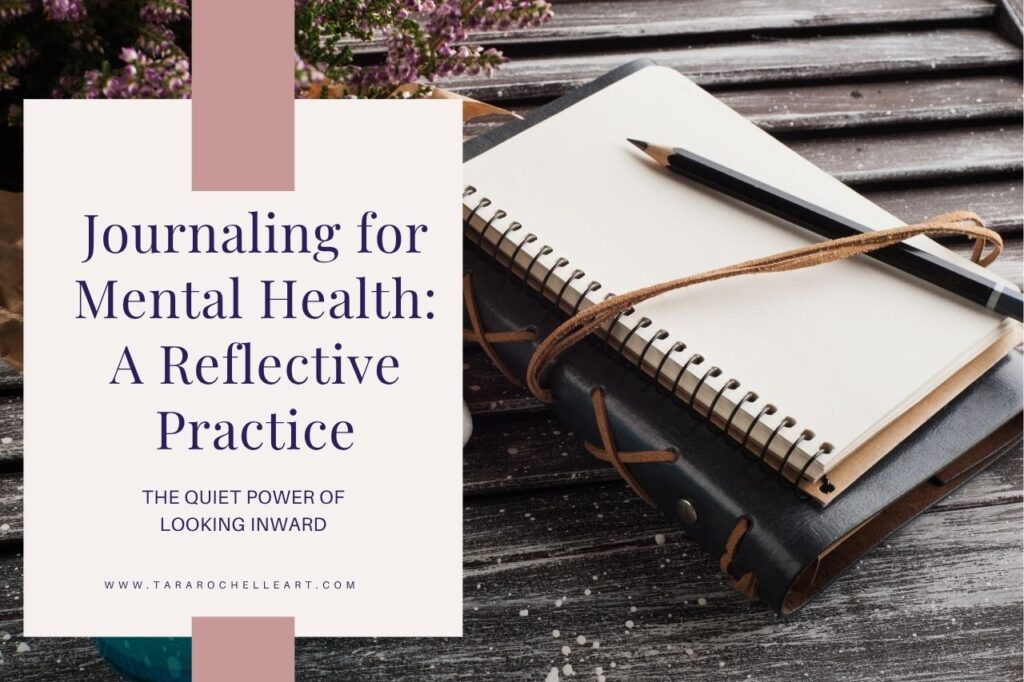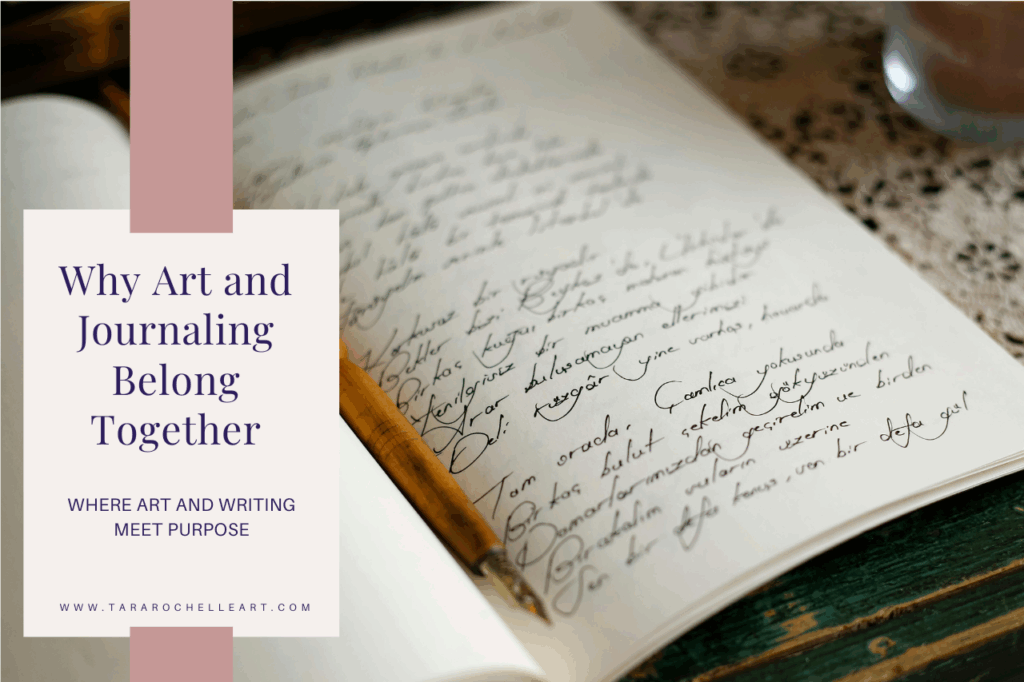The Quiet Power of Looking Inward
In a world constantly asking us to tap, scroll, and keep up, journaling for mental health invites us to pause.
This practice isn’t just about writing down what happened or answering a generic prompt. It’s a thoughtful, intentional process that helps you examine your experiences, emotions, and choices more deeply. It asks: What does this mean to me? What do I carry forward?
At its heart, it is the sacred act of sitting with your thoughts, studies, endeavors, and yes, your worries, and listening.

I have always loved writing. But for many seasons, I didn’t write at all. At other times, my words were used by others, and my creative well ran dry. I often kept a shelf of beautiful, empty journals; no words, no truth, no voice.
Then, during a difficult season, journaling became a lifeline. I began to understand how to use the page for emotional clarity, healing, and self-reflection. Through practice and study, I learned how to ask the right questions, and how to give myself the space to discover what my subconscious already knew.
This is what many call reflective journaling, a deeper, more intentional form of journaling for mental health and insight. It helps you turn inward with clarity, compassion, and direction.
Anyone can begin. While the method is simple and teachable, the insights it reveals are uniquely personal and often life-changing.
Many people journal. But few truly reflect, and fewer still have a journaling process that turns insight into meaningful, actionable growth. Yet once you begin, it can change how you see everything.
What Is Reflective Journaling—and How It Supports Mental Health
Reflective journaling is the intentional act of writing to examine experiences, emotions, and ideas, not just to capture what happened, but to uncover meaning, direction, and next steps. Whether you’re navigating personal growth, creative projects, or major life decisions, reflection helps bring hidden insight to the surface.
Unlike diary entries or venting on a page, reflective journaling has structure. It turns lived experience into insight.
Others have explored this practice too. In recent years, educators, psychologists, and creatives alike have offered frameworks that help clarify what reflective journaling offers and how we can use it well.
Scholars define it as “a deliberate way of systematically recalling experiences to reframe the current situation” (Taczak, 2020). Others describe it as “an analytical practice in which the writer reflects on a real or imagined scene, memory, or interaction and draws meaning from it.”
In short, it is both inward inquiry and outward transformation.
Recent academic literature emphasizes that reflective journaling helps individuals connect past experiences to future intentions, bridging emotion and behavior.
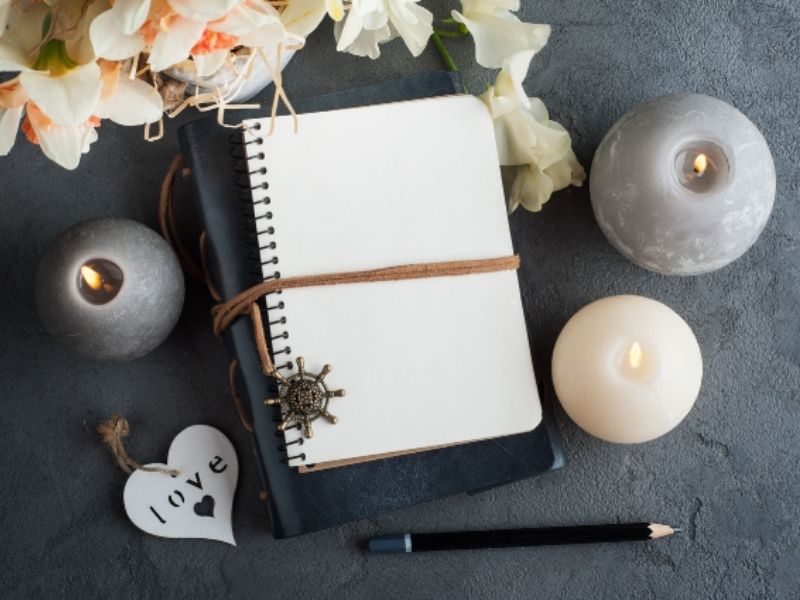
To me, reflective journaling is a kind of dialogue with yourself, one that unfolds clarity, creativity, and direction over time.
Put simply, reflective journaling allows you to turn inward, to find your own compass and use it to create meaningful change in your life, work, or studies. No one tells you what to do. Instead, you discover your next steps by illuminating the path within.
It isn’t a fast process. It isn’t a singular method. And it isn’t yet fully understood or studied for the many ways it can serve us.
But it is powerful. It is personal. And it is a mindful, adaptive practice that evolves with you.
Types of Journaling for Mental Health
Many journaling methods exist and all have their place. However, reflective journaling offers a distinct path forward: one that’s structured, intentional, and deeply focused on growth.
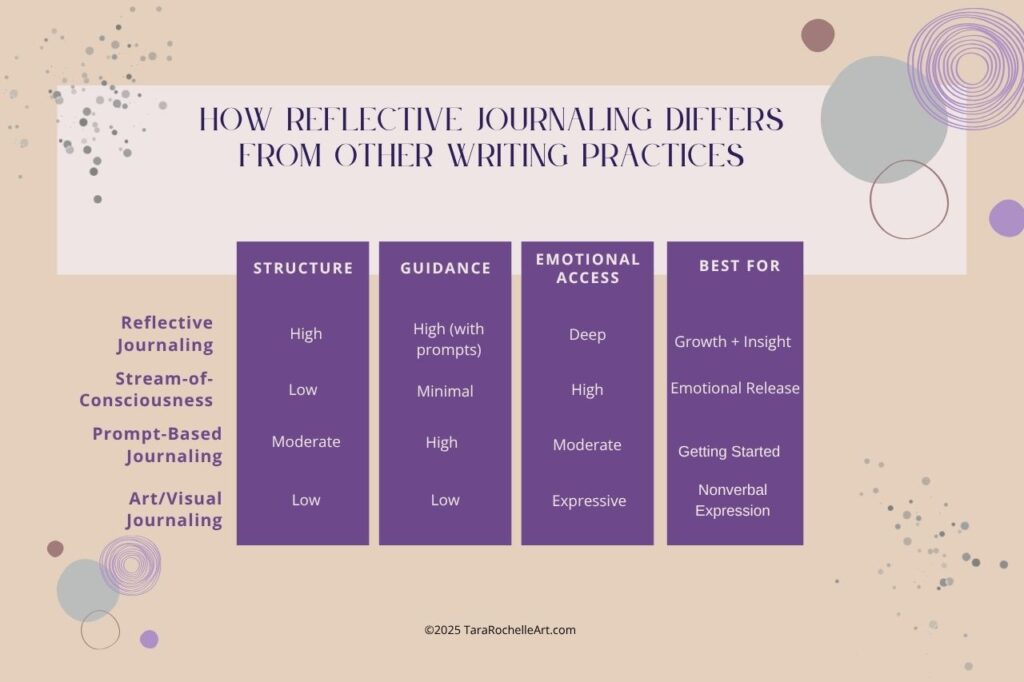
While reflective journaling shares some surface similarities with other methods, its purpose and process set it apart.
Stream-of-consciousness and visual journaling are excellent for surfacing emotions but they rarely provide a clear sense of what to do with those emotions. Prompt-based journaling can offer structure but often uses disconnected or generalized questions that don’t go far enough to reveal deeper insight.
Reflective journaling, by contrast, can use thoughtfully sequenced prompts to guide you into a single theme, decision, or life experience. It helps you discover what something means to you and how that understanding might shape your next move.
Some of the most meaningful journaling practices arise when different styles are combined with intention. A process might begin with expressive writing to surface raw emotions, move into guided prompts for deeper reflection, and conclude with a visual or symbolic response to help anchor the insight.
This kind of layered approach honors both release and understanding. It helps you not only feel more, but know what to do with what you’ve felt. How to move forward.
Your journaling can be simple and profound. When guided well, it becomes more than a habit, it becomes a pathway.
The Core Components of Reflective Journaling
Reflective journaling isn’t about writing perfectly, it’s about writing purposefully. While the format can vary, most reflective frameworks agree on six core components:
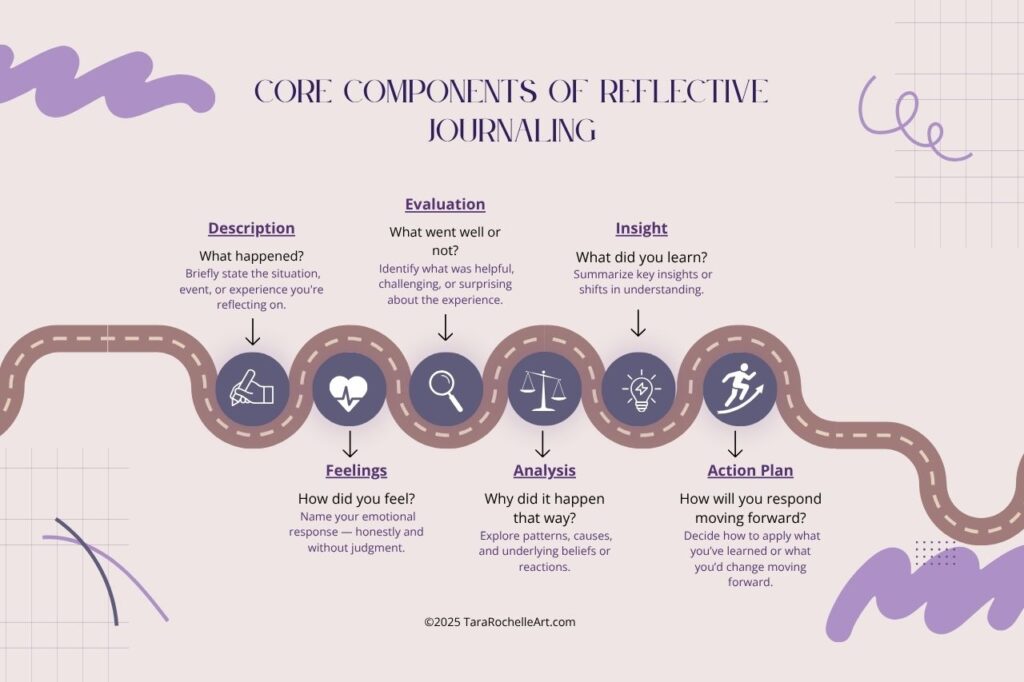
These steps are drawn from Gibbs’ Reflective Cycle, a widely used model in education, counseling, and professional development. While you don’t need to follow each step rigidly, having a rhythm like this can help you move beyond surface-level observations into deeper, more transformative reflection.
Reflective journaling can be free-form or guided. What matters most is honesty, awareness, and the courage to stay curious about your own inner world.
Why Journaling for Mental Health Works: Evidence-Based Benefits
🧠 Cognitive Growth
Reflective journaling helps:
- Improve memory and mental clarity
- Support creative thinking and problem-solving
- Strengthen awareness of learning patterns
It isn’t just about remembering facts. It’s about understanding how you think, so you can grow with more clarity and direction.
💓 Emotional Resilience
Reflective journaling supports:
- Reducing stress and anxiety
- Increasing mindfulness and self-awareness
- Encouraging emotional insight and compassion
It gives feelings a safe place to land, providing release, relief, and perspective.
🌱 Personal & Professional Development
Reflective journaling also helps:
- Clarify goals and values
- Reveal recurring patterns or limiting beliefs
- Build self-trust and personal direction
This practice has helped me navigate everything from creative projects to major life decisions, to my relationship with health and healing.
A Gentle Invitation to Begin
If your life feels full or foggy, or if your thoughts keep circling without landing, reflective journaling might be the anchor you didn’t know you needed.
You don’t need perfect words. You don’t need a fancy notebook. You just need a little space and a willingness to begin.
Start with a moment. A memory. A question. Then write your way through.
💌 Want Guidance as You Go?
Sign up for my newsletter to receive quiet encouragement, thoughtful prompts, and creative practices rooted in reflection.
✨ You were born to create. Let’s start something beautiful together.
🔗 Explore Next
– 🖋️ Face the Blank Page Without Freezing
– 🌿 Start Where You Are (Even If You Don’t Feel Ready)
– ✨ How to Actually Start Reflective Journaling (Even If You’ve Tried Before)
References
- Taczak, K. (2015). Reflection is Critical for Writers’ Development. In Naming What We Know, Utah State University Press.
- Reflective Writing – Wikipedia
- Reflective Journaling and Self-Awareness – Frontiers in Psychology (2021)
- Reflective Writing Guide – USC Libraries
- Journaling to Increase Self-Awareness – Prosper Liverpool
- Reflective Practice in Education – Frontiers in Education (2022)
- Mental Health and Reflective Journaling – PMC9710538
- The Power of Journaling for Your Mental Health – Peachey Counselling
- Reflective Journal Insights – Day One App
- Reflective Journaling Research – WebGuru at Northeastern
- What Is Reflective Journaling – Journaled Life
- Scoping Review on Reflective Writing – SAGE Journals (2024)

